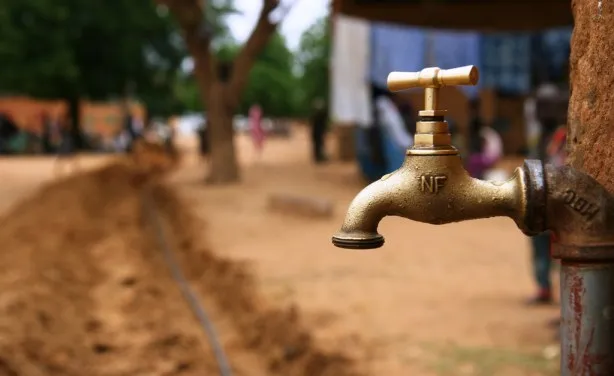Despite paying their monthly water bills, residents of East Legon Hills – a fast-paced community in the Adenta municipality of the Greater Accra Region – have bemoaned the perennial rationing of tap-water that has beset the community for years.
Residents who have been on the receiving end lamented how the situation is impacting their lives negatively, in addition to having a toll on their finances, health and hygiene.
According to residents, the water is being rationed on an average two months basis and also flows under low pressure.
“My tap has stopped flowing for close to two months now; and when it eventually does, it flows for only two days under low pressure and stops,” said Christiana Buah, a resident of the area.
While access to potable water is a basic right for all, a staggering 14 percent of Ghana’s urban population is left with the stark reality of acquiring such amenities from private entities.
At a time when the spotlight is on the global move to attain goal six of the Sustainable Development Goals, Ghana’s claimed ability to achieve this target may be far-fetched.
According to a recent report by WaterAid Ghana, about 75 percent of the capital’s residents lack 24-hour access to water – and 10 percent have no access at all.
In an interview spanning various wings of the East Legon Hills community, residents complained that the inconsistent flow of tap water has reduced the quality of life among the community’s inhabitants.
Another resident, Kofi, who spoke to B&FT said: “As I speak to you, I have not taken my bath. I am compelled to bath around midday daily, because I cannot afford to buy water two times daily”.
Among other things, residents lamented that the current economic hardship in the country has compounded the situation, and has left them grappling to live within their monthly budget as the situation is compelling them to patronise the services of water-tanker drivers – which they say are very exorbitant.
A grocery seller told the B&FT that: “I make a profit of an average of GH¢500 monthly, yet I’m forced by the situation to buy water from a water-tanker driver who sells a small sized poly tank of water to me at GH¢120 every two weeks – amounting to GH¢240 a month. This leaves me with an insignificant amount for my family to depend on”.
“I have been experiencing skin-rashes ever since I moved to this area, which I suspect is a result of the water I use to bathe on a daily basis,” an angry resident vented.
A resident simply identified as Barikisu bemoaned how female members of her household are grappling with menstrual hygiene issues, as the situation is compelling them to bath only once daily.
“I have three adolescent girls, and anytime it’s that time of the month they have to bath only once daily because I cannot afford to buy two buckets of water per day.”
Ghana Water Company
In an interview with the Public Relations Officer of Ghana Water Company Limited, Stanley Martey, he acknowledged that his outfit is encountering some challenges in extending full-time services to the area, leading to water-rationing.
He however stated that plans are underway to ameliorate the situation for residents. “As it stands, the treatment plant may not be able to provide an adequate supply of water to every part of the country, as it has exceeded its capacity. We are left with options to either expand the treatment plant or build new ones.
“At the moment, inadequate funds have mothballed plans for expansion of the treatment plant or acquisition of new ones.”
He further cited that his outfit is open to private investors, as the responsibility to combat the situation does not rest only on government but also the shoulders of anyone who calls this country home.
Although Mr. Martey admitted that the problem will continue to persist for years, he stated comprehensive plans are being put in place to extend coverage to every part of the country by 2030.










